Cardiac Neurodevelopmental Inpatient Program
Treatments and Services
Holding your baby, feeding your baby and playing with your baby will be different after heart surgery. Though this sounds daunting, our team will be there to help you navigate it all. We were one of the first hospitals to create a process that brings neurodevelopmental specialists to your child’s bedside. This way, you can meet with your child’s specialists to discuss developmental goals and strategies for your child.
No matter how long you’re here, our support team will make sure you have everything you need to care for your child and get them off to a strong start.
More resources to help your baby’s development
Child Life specialists. Child life specialists help children (and their parents and siblings) cope with being at the hospital. They also help prepare them emotionally for procedures and surgery.
Occupational Therapy. Occupational therapists work to improve your child’s ability to participate in routine activities. These include caring for themselves, playing, resting or attending school.
Massage therapists. After your child’s procedure they might need to spend a lot of time in their crib or bed. Our massage therapists come frequently to your child’s bedside and offer massages. They can also teach you some massage techniques that you can use on your child when you go home.
Music therapists. We know that being in a hospital for an extended time isn’t ideal, but our trained music therapists help children and their families cope. We were one of the first hospitals to offer music therapy in the 1990s and we now have the largest musical therapy program in the region.
Physical Therapy. Physical therapy can maintain or restore movement, improve range of motion, help ease pain, and help prevent injuries. Sometimes, physical therapy can replace surgery or medication in treating a problem.
Speech Language Pathology. Your child’s congenital (present at birth) heart condition could affect nerves or muscles that can cause problems with how their brain and body control speech or swallowing actions. A speech and language pathologist provides therapy to help your child overcome these problems.
Strengthening the parent-baby bond
Some of the goals we have helped families with include:
Holding your baby with medical devices
Stroller rides around the units
Using wraps/carriers during your stay
Breastfeeding after surgery
Skin-to-skin care
Games, toys and activities that will help your child develop in the hospital and at home
Using research to improve care
Not only did U.S. News & World Report rank us as a top children’s hospital for cardiology and heart surgery, but we’re also proud to be part of the international Cardiac Neurodevelopmental Outcome Collaborative (CNOC) and National Pediatric Cardiac Quality Improvement Collaborative (NPC-QIC). We work together with hospitals from all over the world on neurodevelopmental research. This helps us find ways to improve how these children develop, so they can live happier, more fulfilling lives.
Holding your baby, feeding your baby and playing with your baby will be different after heart surgery. Though this sounds daunting, our team will be there to help you navigate it all. We were one of the first hospitals to create a process that brings neurodevelopmental specialists to your child’s bedside. This way, you can meet with your child’s specialists to discuss developmental goals and strategies for your child.
No matter how long you’re here, our support team will make sure you have everything you need to care for your child and get them off to a strong start.
More resources to help your baby’s development
Child Life specialists. Child life specialists help children (and their parents and siblings) cope with being at the hospital. They also help prepare them emotionally for procedures and surgery.
Occupational Therapy. Occupational therapists work to improve your child’s ability to participate in routine activities. These include caring for themselves, playing, resting or attending school.
Massage therapists. After your child’s procedure they might need to spend a lot of time in their crib or bed. Our massage therapists come frequently to your child’s bedside and offer massages. They can also teach you some massage techniques that you can use on your child when you go home.
Music therapists. We know that being in a hospital for an extended time isn’t ideal, but our trained music therapists help children and their families cope. We were one of the first hospitals to offer music therapy in the 1990s and we now have the largest musical therapy program in the region.
Physical Therapy. Physical therapy can maintain or restore movement, improve range of motion, help ease pain, and help prevent injuries. Sometimes, physical therapy can replace surgery or medication in treating a problem.
Speech Language Pathology. Your child’s congenital (present at birth) heart condition could affect nerves or muscles that can cause problems with how their brain and body control speech or swallowing actions. A speech and language pathologist provides therapy to help your child overcome these problems.
Strengthening the parent-baby bond
Some of the goals we have helped families with include:
Holding your baby with medical devices
Stroller rides around the units
Using wraps/carriers during your stay
Breastfeeding after surgery
Skin-to-skin care
Games, toys and activities that will help your child develop in the hospital and at home
Using research to improve care
Not only did U.S. News & World Report rank us as a top children’s hospital for cardiology and heart surgery, but we’re also proud to be part of the international Cardiac Neurodevelopmental Outcome Collaborative (CNOC) and National Pediatric Cardiac Quality Improvement Collaborative (NPC-QIC). We work together with hospitals from all over the world on neurodevelopmental research. This helps us find ways to improve how these children develop, so they can live happier, more fulfilling lives.
Meet the Care Team
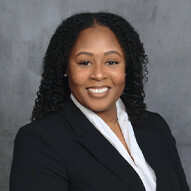 Randi Cheatham-Johnson, PhDPediatric Psychologist - Cardiology
Randi Cheatham-Johnson, PhDPediatric Psychologist - Cardiology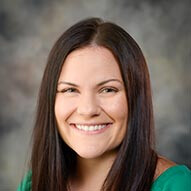 Anna Jones, APRN, PNP-AC/PCNurse Practitioner - Cardiac Critical Care
Anna Jones, APRN, PNP-AC/PCNurse Practitioner - Cardiac Critical Care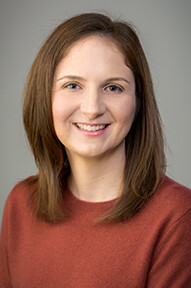 Betsy Beall, MS, CCLSChild Life Specialist
Betsy Beall, MS, CCLSChild Life Specialist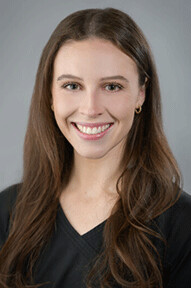 Bailey Bedichek, MS, CCLSChild Life Specialist
Bailey Bedichek, MS, CCLSChild Life Specialist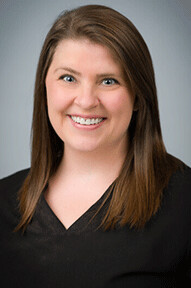 Katie Cameron, MS, CCLSChild Life Specialist
Katie Cameron, MS, CCLSChild Life Specialist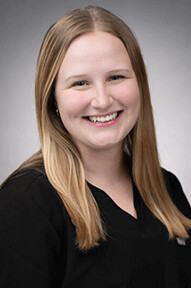 Jennifer Goodman, BS, CCLSChild Life Specialist
Jennifer Goodman, BS, CCLSChild Life Specialist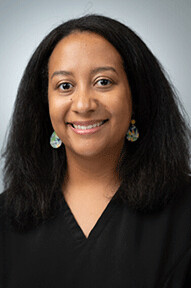 Teresa Hargrove, MS, MT-BCMusic Therapist
Teresa Hargrove, MS, MT-BCMusic Therapist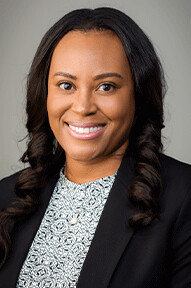 Brittney Harris-Dixon, MA, CCC-SLP, NTMTCSpeech Language Pathologist
Brittney Harris-Dixon, MA, CCC-SLP, NTMTCSpeech Language Pathologist Rachel Gan, MT-BCMusic Therapist
Rachel Gan, MT-BCMusic Therapist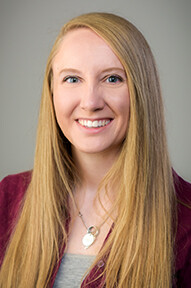 Stephanie Mikus, MA, MT-BCMusic Therapist
Stephanie Mikus, MA, MT-BCMusic Therapist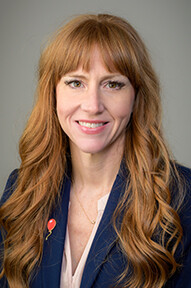 Stefanie Rogers, MOT, OTROccupational Therapist
Stefanie Rogers, MOT, OTROccupational Therapist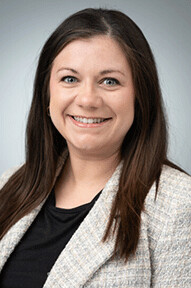 Madeleine Solari, MA, CCC-SLPSpeech Language Pathologist
Madeleine Solari, MA, CCC-SLPSpeech Language Pathologist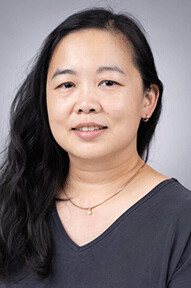 Elizabeth Tong, PT, DPT, PCS, CLTPhysical Therapist
Elizabeth Tong, PT, DPT, PCS, CLTPhysical Therapist



